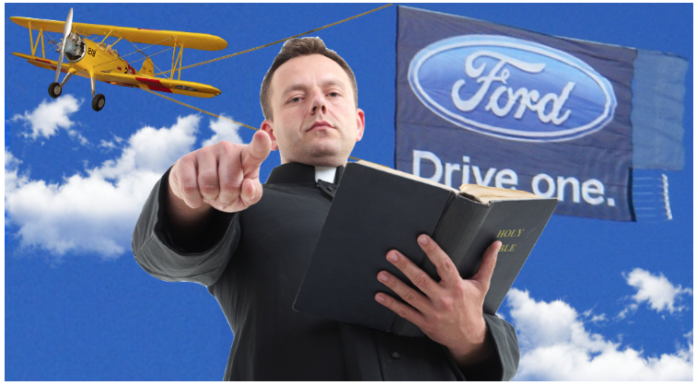As we approach what will inevitably be another divisive and supercharged presidential race, the people of the United States continue to find themselves divided over the idea of ‘American Values’ and what those values are. Independence. Diversity. Equality. Individualism. Privacy. Informality. According to a recent analysis of immigration interviews, these are just some of the characteristics which our global peers associate with us. But would we agree with such assessments? And who’s responsible for defining our collective values anyway?
Religious and political groups might lay claim to such a powerful role, but the majority of our population might disagree. While recent years have presented an ever-increasing gap between the religious leanings of the conservative right and the science-centric ideals of the liberal left, the majority of our voting public considers themselves somewhere ‘in the middle’. But, if recent shakeups in organized religion are any indication, it seems that science might just win out in the long run, after all. Because, rather than fight to control American values in terms of broad strokes, many religious leaders are trying to flex their influence in areas where they feel less challenged by opposing viewpoints.
Meet Father John Patrick O’ Callahan, a Roman Catholic priest from Worcester, Massachusetts. Citing what he calls Used Car Values as the basis of his teachings, Father O’Callahan aims to influence young drivers in making ethical and prudent vehicle choices that fall in line with the ideals held by the Roman Catholic church.
“I refer to the movement as W.W.J.D,” he explains “which is an abbreviation for ‘What Would Jesus Drive?’ It allows us to better support automakers whose values are aligned with ours. Greater sales mean greater success. Greater success mean more influence over national policy. And such efforts aren’t exclusive to the Roman Catholic church. From Protestant and Baptist churches to other forms of Christianity that exist from coast to coast, countless congregations are following suit and practicing moral teachings using automotive choice as the (no pun intended) vehicle for delivering their message.”
So, what would Jesus drive? According to Father John O’Callahan, the son of God would surely choose a pre-owned Ford truck. “I mean, he was a carpenter, right? So he’d definitely want a vehicle that could get the job done, but would want to keep a low profile, and would probably favor a used model. No matter what his choice, though, there would plenty of room for the twelve apostles to ride comfortably, even if the Son of God was hauling loaves and fishes.”
But other pundits feel that the conversation needs to dive deeper than just the high profile chapters of the New Testament. For example, if the Book of Genesis states that “God drove Adam and Eve out of the Garden of Eden in a fury”, one might assume that he’d chauffeured the couple in a classic Plymouth sedan of the same name. If Psalm 83:15 states that God should “pursue (his) enemies with (his) tempest and terrify them with (his) storm”, it could imply that he held some personal affection for certain offerings from Pontiac and Geo. Or consider the possibility that Jesus might have driven a Honda, but chose to keep it on the down-low. This, of course, is gleaned from John 12:49 which details Jesus’ declaration to a crowd that he “did not speak of (his) own Accord”, and Act 5:12 which states that “the Apostles were in one Accord”.
While we were quick to disregard Father O’Callahan’s claims, such examples could lend some credibility to the idea of a correlation between religion and automotive giants. Then again, it could just be a desperate attempt by religion to remain relevant and influential. In a related story, Atheism has never been more popular…








![[Reprinted From the Classifieds Section of Our Local Newspaper] Pole dancers are shown in front of a used Chevy Silverado for sale.](https://thelemon.news/wp-content/uploads/2023/04/image1-2-218x150.jpeg)



